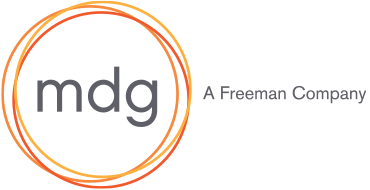
According to Freeman’s recent audience research, the difference between a good event and a great one may come down to mindset. Some organizers and marketers are holding tight to what’s worked before — even as audiences, expectations and metrics for success continue to change. Others (let’s call them the “Innovators”) are making bold, data-informed decisions to consistently evolve their events and attract new and highly qualified attendees.
The good news? Anyone can be an Innovator. It starts with a few tweaks to the way you approach event planning and execution.
Be Audience-Obsessed
While a more conventional approach might rely on last year’s post-show report to guide planning and marketing, Innovators start with real-time audience insights. And they go a step further by considering feedback from people who didn’t attend.
Innovators invest in persona development, qualitative surveys and behavioral data to uncover what truly matters to attendees and non-attendees. What keeps them coming? What keeps them away? What would compel them to engage, or engage more? This helps build a better, more targeted experience for everyone.
For example, after conducting surveys and attendee interviews, NAB Show® received feedback that their show was overwhelming. They went back to the drawing board and completely reorganized the show floor, grouping exhibitors by broad specialty so attendees could speak to a variety of competitors in one space. Attendees love how easy it was to navigate the floor! Their time at the event was more productive, and they didn’t have to spend the week walking back and forth.
Cut to Create
One of the most impactful things Innovators do is make room for new ideas, better formats and more audience-relevant content. That often means letting go of legacy programs that no longer deliver. It’s not always easy, but cutting initiatives that aren’t pulling their weight anymore can free up budget and bandwidth for bolder programs and activations.
You know that low-performing speaker series you’ve been doing for 10 years now? Use the budget from that to fund a new immersive learning lab which could draw new attendees and sponsors eager to align with something fresh.
Empower Teams to Drive Smart Risk-Taking
Freeman’s report suggests that many organizers want to evolve their events, but don’t feel empowered to do so. It’s imperative that leaders encourage experimentation and reward creativity.
Rather than punishing failure, savvy managers view it as part of a test-and-learn cycle. They invite collaboration both within and across teams and foster environments wherein people aren’t afraid to speak up and are eager to share new ideas. That cultural shift — from “safe execution” to “strategic exploration” — often unlocks faster, more relevant innovation and creates new teams of Innovators.
Data Leads to Action
Innovators don’t just collect data — they act on it. They’re plugged into market trends, sponsor feedback and industry benchmarks. And they use those insights to justify changes to formats, content, marketing channels and even pricing strategies.
They can see that audiences are looking for more than traditional lectures, so they move quickly to diversify session formats with debates, hands-on workshops and live case studies.
Based on Freeman research, the International Baking Industry Exposition knew attendees preferred shorter, more engaging education sessions. To improve the experience — and increase floor traffic — they added more space for education to their show floor, but shortened sessions from one hour to 20 minutes. As a result, they were able to double the number of sessions available to attendees, offer them in multiple languages and streamline their pricing model.
Innovators also bring data to the table when a stuck-in-their-ways manager gives them a hard time about doing things differently. They use the data to show why changes are needed, which programs are under-performing and how budget can be moved around.
Ready To Be an Innovator?
“The way we’ve always done it” isn’t going to work anymore. Innovators are evolving faster and seeing better results — higher attendance, stronger feedback, increased sponsor interest.
A fresh mindset will help your event and marketing go from standard to standout. Start by challenging old assumptions. Look at where you can reallocate budget. And most importantly, empower your team to explore new directions.

